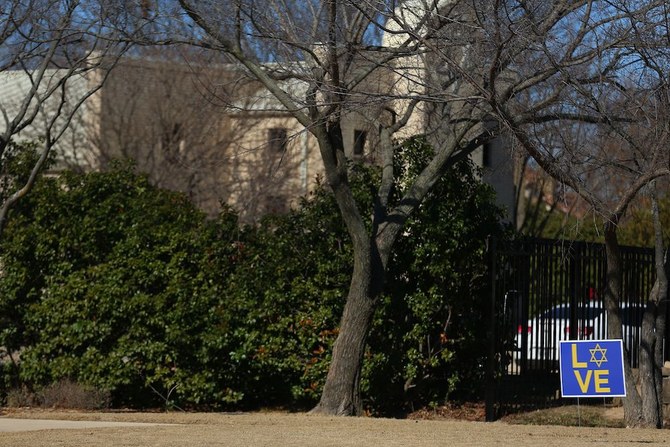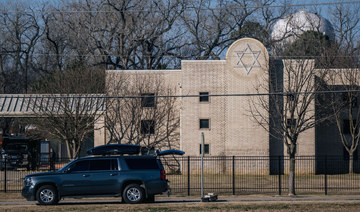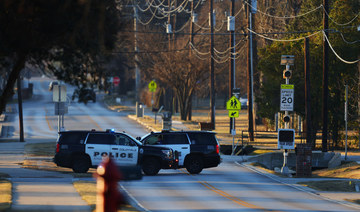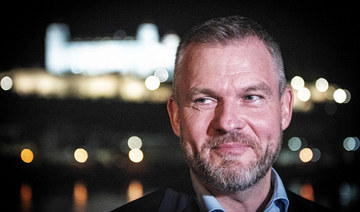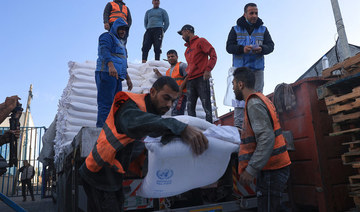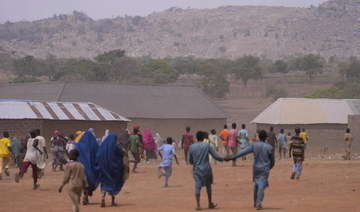LONDON: Extremist British cleric Anjem Choudary recently urged his supporters to help free notorious Islamist Aafia Siddiqui “physically or by ransom” — the same person a British terrorist demanded be released while he occupied a synagogue in Texas on Saturday.
Choudary, who was profiled by Arab News in its “Preachers of Hate” series, called in September last year for the release of Siddiqui, known as “Lady Al-Qaeda.” It came three months after his release from a British prison where he had served time for supporting the terrorist group Daesh.
“The obligation upon us is to either free her physically or to ransom her or to exchange her,” Choudary wrote on social media platform Telegram. “However, until such time as we can fulfill one of these obligations the minimum that we can do is to use all that we have to raise awareness about her case, to keep her name in the hearts and in the minds of Muslims.”
His call for action was allegedly echoed by Malik Faisal Akram, the man who held four people hostage for 10 hours at the Congregation Beth Israel synagogue in Colleyville, Texas on Saturday. It is 25 miles from the federal facility at Fort Worth where Siddiqui is serving an 86-year sentence.
Akram, 44, died during a shootout with law-enforcement officers that ended the synagogue siege.
Choudary is believed to have influenced about 100 British jihadis through his online lectures and videos.
Siddiqui was arrested in Afghanistan in 2008 while carrying 2kg of sodium cyanide and plans for a chemical attack on New York City. During her trial she demanded jurors be subjected to DNA testing to check whether they were Jewish. She also attempted to shoot a guard during interrogation.
A neuroscientist by training who earned a scholarship to study biology at Massachusetts Institute of Technology in 1991, Siddiqui attended the same mosque later frequented by the Boston Marathon bomber, Tamerlan Tsarnaev. She took part in firearms courses run by the National Rifle Association, was for a time on the Federal Bureau of Investigation’s Most Wanted list, and was publicly named by Daesh fighters as a candidate for a prisoner-swap deal for James Foley, the American photojournalist who was murdered in 2014.
A profile of Siddiqui by the Boston Globe in 2014 suggested that she had been radicalized by the outbreak of the war in Bosnia, after which she became a member of Al-Kifah Refugee Center, thought to have been Al-Qaeda’s operational hub in the US at the time.
Evan Kohlmann, a terrorism expert, told the Globe: “Aafia was from a prominent family with connections and a sympathy for jihad. She was just what they needed.”
Waqas Jilani, at the time a graduate student at Clark University, told the Globe that Siddiqui had boasted she would be proud to be on the FBI’s Most Wanted list, and urged fellow Muslims to take up arms and fight.
“She was always mouthing off about the US and the FBI being so bad and all,” he said.
Siddiqui’s former husband, Mohammed Amjad Khan, described how, having married her over the phone from Pakistan, he arrived in the US to discover she would regularly watch videos of Osama bin Laden and spent weekends at training camps with other members of Al-Kifah.
“I discovered that the well-being of our nascent family unit was not her prime goal in life,” he said. “Instead, it was to gain prominence in Muslim circles.”
He added he felt unable to introduce her to professional colleagues because she would “only want to talk about them converting to Islam. Invariably this would lead to unpleasantness.”
He added: “Her focus had shifted to jihad against America, instead of preaching to Americans so that they all become Muslims and America becomes a Muslim land.”
After the Sept. 11 attacks in 2001, Siddiqui demanded that the couple return to Pakistan and get divorced. It is thought she later married Ammar Al-Baluchi, the nephew of 9/11 architect Khalid Sheikh Mohammed.



